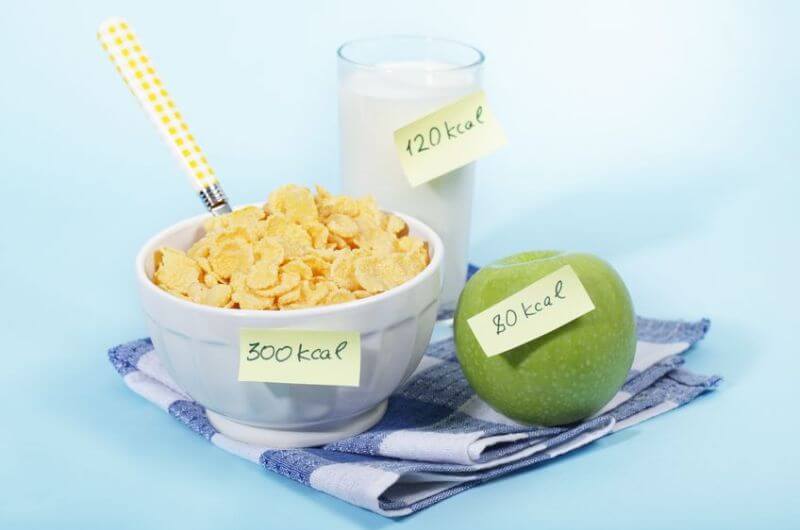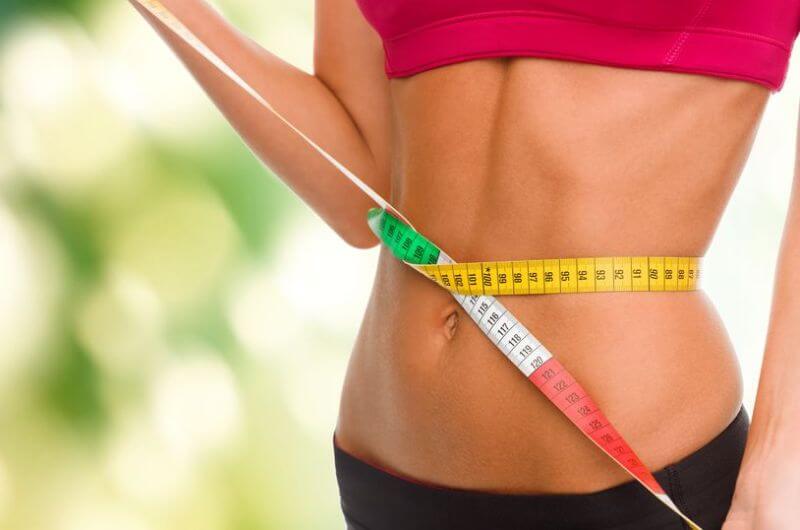Have you ever stopped losing weight despite “doing everything right” with your diet?
Have you ever struggled to gain weight no matter what you ate?
Have you ever wondered why some people can stay lean eating sugar and junk food regularly?
Well, the principles of energy balance answer these mysteries and more.
They’re the fundamental laws that dictate how your body weight changes over time, and they can be used to intentionally gain and lose weight as desired.
That means that you’re going to be able use what you learn in this article to…
- Consistently break through weight loss plateaus.
- Kickstart weight gain (and even if you think you’re a “hardgainer”).
- Maintain your current body fat percentage with ease.
The bottom line is out of everything you could learn about dieting, energy balance should be at the top of your list because it’s the biggest linchpin.
In other words, if you don’t understand energy balance and know how to use it to your advantage, you’ll never be able to put the rest of the puzzle together.
You’ll always struggle with your weight, and you’ll never quite understand why some approaches to dieting work and others don’t.
So, if you’re ready to learn how energy balance can help you lose fat, gain muscle, and stay lean, then keep reading.
Want to listen to more stuff like this? Check out my podcast!
What Is Energy Balance?

Energy balance is the relationship between the amount of energy that you feed your body and the energy it burns.
This energy is expressed in kilocalories, also referred to as just “calories,” and one calorie is the amount of energy it takes to heat one kilogram of water one degree Celsius.
As you probably know, various foods contain varying amounts of calories (energy). For example, nuts are very energy dense, containing about 6.5 calories per gram, on average. Celery, on the other hand, contains very little stored energy, with just 0.15 calories per gram.
Now, if you add up the calories of all the foods that you eat every day, you’ll have your total calorie intake.
If you then compare this to how much energy you’re burning every day through basic physiological processes and all physical activity, you’ll notice one of three things:
1. You’re consuming more energy than you’re burning.
This puts your body is in a state of “positive energy balance,” and the result is weight gain over time. (You’ll learn more about why soon.)
2. You’re burning more energy than you’re consuming.
This puts your body is in a state of “negative energy balance,” and the result is weight loss over time.
3. You’re burning more or less the same amount of energy as you’re consuming.
This puts your body is in a state of “neutral energy balance,” and the result is weight maintenance.
These aren’t hypotheses or debunked theories. This is the first law of thermodynamics at work.
That’s why every single controlled weight loss study conducted in the last 100 years, including countless meta-analyses and systematic reviews, has concluded that meaningful weight loss requires energy expenditure to exceed energy intake over time.
That’s also why bodybuilders dating back just as far, from Sandow to Reeves and all the way up the line, have been using this knowledge to systematically and routinely reduce and increase body fat levels.
And that’s why new brands of “calorie denying” come and go every year, failing to gain acceptance in the weight loss literature.
The reality is a century of metabolic research has proven, beyond the shadow of a doubt, that energy balance is the basic mechanism that regulates weight gain and loss.
All that doesn’t mean you have to count calories to lose weight, but it does mean you have to understand how calorie intake and expenditure influences your body weight and eat accordingly.
The 4 Most Common Misconceptions About Energy Balance

You’ve probably heard people argue against the primacy of energy balance and calorie intake.
Some say that everything I’ve discussed so far is contradicted or even debunked by the latest scientific research on the human metabolism.
Others offer up stories about their own weight gain/loss or the experiences of others that seem to defy the principles of “energy in vs. energy out.”
Well, in this section of the article, I want to address four myths about energy balance that I encounter all the time…
“I lost weight on [insert diet here] and never counted calories.”
It’s easy to find people who’ve lost significant amounts of weight without ever paying attention to how many calories they were eating.
Maybe they went low-carb. Maybe they stopped eating meat, sugar, or animal products. Or maybe they just started eating “cleaner.”
And they sure lost weight.
What they don’t realize, though, is that the root cause of their weight loss wasn’t the food choices per se, but the relationship between how much energy they ate and burned (energy balance).
In other words, they lost weight because their new diet kept them in a state of negative energy balance long enough for meaningful weight loss to occur, not because they ate the “right” foods and avoided the “wrong” ones.
You see, most “weight loss diets” out there revolve around food restriction.
You have to limit or avoid foods or entire food groups (carbs or sugars of any kind, for example), and this inevitably forces you to cut various higher-calorie foods out of your diet, which also happen to be the ones that are highly palatable, making them easiest to overeat.
Thus, when you cut them out, calorie intake naturally goes down, and once it dips below the expenditure threshold, you start getting leaner.
If, however, energy expenditure never exceeds consumption, then no fat loss will occur. Ever. Period.
“I starved myself and didn’t lose weight.”

Skim through a popular fitness forum and you’ll find plenty of people reporting no weight loss despite (reporting) eating a small number of calories every day.
This, then, is held up as proof that everything we’re discussing here isn’t true, or isn’t true for everyone. That some people simply can’t lose weight through calorie restriction alone.
Well, their frustration is understandable, but that doesn’t mean their metabolisms work in fundamentally different ways than everyone else’s.
What’s actually happening is almost always nothing more than a matter of human error. The three most common mistakes are:
1. Underestimating actual calorie intake.
Unfortunately, most of us are really bad at accurately estimating how many calories we eat every day.
Studies show that while someone might think they’re eating 800 calories per day, it could easily be 1,200 or 1,500 or even more.
2. Overeating too frequently.
Most of us also don’t realize how much “cheat meals” or, worse, cheat days can set us back.
A quick example:
You stick to your diet faithfully throughout the week, eating about 300 calories less than you burn every day, ending Friday with a total weekly deficit of 1,500 calories.
Then comes the weekend, though, when you’re less active and more lax with what you eat.
Saturday is your “cheat day,” and you put down about 1,000 more calories than you burn (very easy to do if you just “eat whatever you want”), and Sunday is a lesser version of it, ending a couple hundred calories over expenditure.
What have you done here?
Yup, you’ve basically erased your entire week’s calorie deficit in two days, putting you back to square one.
3. Failing to account for water retention.
When you keep your body in a calorie deficit, and especially a large one, you lose fat, but you also tend to retain more water.
The reason for this is simple: calorie restriction increases production of the “stress hormone” cortisol, which in turn increases water retention.
Depending on your physiology, this effect can minimal, or can be so strong that it completely obscures several weeks of fat loss.
In other words, you can lose fat for several weeks without losing weight, and this can give the appearance that calorie counting “doesn’t work.”
“If you eat clean, calories don’t matter.”

You’ve undoubtedly heard that you just have to “eat clean” if you want to lose weight.
You know, just cut out the sugar, junk food, and processed carbs, the fat will melt off.
The reality, though, is “clean” calories count just as much as “dirty ones.”
In other words, if all we’re talking about is body weight, then a calorie is very much a calorie. (If we want to improve our body composition, then things change, but we’ll talk more about that soon.)
Based on what we just discussed above, you can probably guess why eating nothing but “clean” foods has helped so many people lose weight.
Yup, you got it.
Most “dirty” foods, such as pizza, cheeseburgers, candy, and ice cream, are also high in calories and very easy to overeat. Once you get rid of them, calorie intake can drop precipitously, and weight loss can begin in earnest.
That also means that you don’t have to eliminate those foods from your diet to lose weight. Practically speaking, it helps, but so long as your calorie intake is lower than your expenditure, you’ll lose weight regardless of what you eat.
Don’t believe me?
Just ask Professor Mark Haub, who lost 27 pounds in 10 weeks eating Hostess cupcakes, Doritos, Oreos, and whey protein shakes.
Or this guy, who lost 56 pounds in six months eating nothing but McDonald’s, or this guy, who got into the best shape of his life following a rigorous workout routine and eating McDonald’s every day for a month.
Now, I don’t recommend you follow in their footsteps (the nutritional value of your diet does matter), but they prove a point:
When it comes to weight loss or gain, energy balance is king.
“The human body isn’t an inorganic machine. You can’t apply the same rules.”
Some people claim that the first law of thermodynamics doesn’t apply to the human metabolism.
They say our body is far more complicated than the simple heat engine that powers our refrigerator or car.
Their arguments can be convincing, too, chock full of fancy talk like “entropy,” “chaos theory,” and “metabolic advantage,” and tangents on the more esoteric aspects of our endocrine system.
This is all smoke and mirrors.
Yes, it’s true that the human body is far more complex than a combustion engine, but as I mentioned earlier, there’s a reason why every single controlled weight loss study conducted in the last 100 years has concluded that meaningful weight loss requires “calories in” to be lower than “calories out.”
It works the same in the lean and obese, and even in the healthy and diseased.
Energy balance is a first principle of the human metabolism, and simply can’t be circumvented or ignored.
How to Use Energy Balance to Lose Weight Effectively

Alright.
You now know that you can lose weight by consistently feeding your body fewer calories than it burns over time.
That’s well and good, but this is where we need to go deeper, because your goal shouldn’t be to merely lose weight, but to lose fat and not muscle.
In other words, the aim should be improving your body composition, not losing some arbitrary amount of weight.
And to do that, you need good answers to three questions:
1. How large should your calorie deficit be?
2. How should you break those calories down into “macros”?
3. How do you turn macros into an effective meal plan?
Let’s look at each.
How large should your calorie deficit be?
You can absolutely lose weight by eating way less energy than you burn (starve yourself), but it has consequences.
Namely, it makes you more likely to lose muscle, slow your metabolism down, and battle hunger and mood swings.
This is why I recommend an aggressive but not reckless calorie deficit of 20 to 25%.
That is, you want to eat 20 to 25% fewer calories than you burn every day
Research shows that this is a “sweet spot” where you can lose fat rapidly while also preserving your muscle and sanity.
Now, you’re probably wondering how to figure out what this number would be for you.
Well, you can dive into the details of how to figure out how many calories you’re burning every day here, or you can simply use the calculator below:
Want to save your results?
Enter your email so we can send them to you.
This calculator will give you a fairly accurate estimate of the average amount of energy you burn every day, otherwise known as your Total Daily Energy Expenditure, or TDEE.
Once you have your TDEE, the next step is dropping it by 20 to 25%, and the calculator makes this easy to do.
And that’s it! You now have your target daily calorie intake to lose weight effectively.
How should you break your calories down into “macros”?
As you know, body weight is dictated primarily by calories in vs. calories out, regardless of the “quality” of those calories.
Body composition–how your weight divides into muscle, fat, and bone and other substances–is another matter altogether.
When you drill down and specify that you want to lose fat and not muscle, for example, where you get your calories from matters, and a lot.
The specific foods that you eat don’t particularly matter, but how much protein, carbohydrate, and fat you eat does.
These three substances are referred to “macronutrients” because your body needs them in large amounts to survive and function optimally.
If you want the whole rundown on macros and dieting, check out this article, but here’s the long story short for “cutting”:
1. Eat 1 gram of protein per pound of body weight per day.
Studies show this amount of protein intake boosts fat loss and helps preserve muscle.
If you’re obese (a man with 25%+ body fat or woman with 30%+), then 30 to 40% of your daily calories from protein is adequate.
2. Eat 0.2 to 0.25 grams of fat per pound of body weight per day.
Research shows this is adequate for maintaining healthy hormone levels and absorbing nutrients.
This comprises 15 to 20% of daily calories for most people.
3. Get the rest of your calories from carbs.
This higher-carb approach will help you maintain your training intensity in the gym, which in turn will help you burn more calories while working out and better preserve muscle and strength.
Now, you can work this math yourself (one gram of protein contains about 4 calories, one gram of carbohydrate contains the same, and one gram of fat contains 9 calories), or you can just use this even fancier calculator to do the work for you:
| 0 |
| 0 kcal | ||
| 0 kcal | ||
| 0 kcal |
This calculator has built-in presets to quickly adjust your calories and macros based on your goal.
- If you want to lose fat, choose the “cut” preset.
It’ll then set your calorie intake to 80% of your TDEE (20% calorie deficit) and your macros to 40% of calories from protein, 40% from carbs, and 20% from fat.
- If you want to maintain your current weight, select “maintain.”
This will set your calorie intake will be 100% of TDEE and your macros will adjust to 1 gram of protein per pound of body weight and 0.3 grams of fat per pound, and the remaining calories will be allotted to carbs.
- And if you want to gain muscle, select “bulk.”
This will increase your calories to 110% of TDEE and set up your macros in the same way as maintenance.
You can also ignore the presets and set your calories and macros yourself.
The sliders allow you to change everything as you see fit, and once you input your protein intake, it stays locked. This makes it easy to increase or decrease fats and carbs by using the sliders or input fields without throwing off your protein.
How do you turn macros into and effective meal plan?
A meal plan is a list of what foods you’re going to eat every day to hit your calorie and macronutritional targets.
I recommend this approach over a more “intuitive” method of eating because, well, it just tends to work better for most people.
Sure, you can lose weight without paying attention to your calories and macros, but that approach has a higher failure rate (it’s too easy to overeat) and will only get you so far.
Eventually, you’ll have to start planning or tracking the food you eat if you want to keep losing fat.
Click here to learn how to make effective meal plans that make losing fat and building muscle simple and straightforward.
How to Use Energy Balance to Gain Weight Effectively

When you want to lose fat, you eat less than your TDEE. When you want to maximize muscle growth, you eat a bit more.
I explain why in this article, which I highly recommend you read, but what it boils down to is this:
When you want to maximize muscle growth, you should eat, on average, about 10% more than your TDEE.
This slight energy surplus allows your body to grow muscle as efficiently as possible.
The macronutrient breakdown for “bulking” is different as well:
- Eat 1 gram protein per pound of body weight per day.
- Eat 0.3 grams of fat per pound of body weight per day.
- Get the rest of your calories from carbohydrate.
The Bottom Line on Energy Balance
Think of energy balance as the “master key” to your body weight.
With it, you can unlock complete control over how much you weigh, and whether you gain or lose weight over time or stay the same.
It’s also the first element of dieting that you must master because if you get it wrong, nothing else will matter.
The bottom line is you can turn to every fad diet ever created, but if you can’t maintain a calorie deficit, you’ll never lose any weight to speak of, and if you can’t maintain a surplus, you’ll always struggle to gain muscle.
So, take your time to fully understand everything laid out in this article and then create a meal plan and put it to the test.
Once you do, you’ll quickly realize that your metabolism works in exactly the same way as mine and everyone else’s, and that losing fat and gaining muscle isn’t nearly as hard as many people would have you believe.
What’s your take on energy balance? Have anything else you’d like to share? Let me know in the comments below!
Scientific References +
- Burke, L. M., Hawley, J. A., Wong, S. H. S., & Jeukendrup, A. E. (2011). Carbohydrates for training and competition. Journal of Sports Sciences, 29(SUPPL. 1). https://doi.org/10.1080/02640414.2011.585473
- Phillips, S. M., & van Loon, L. J. C. (2011). Dietary protein for athletes: From requirements to optimum adaptation. Journal of Sports Sciences, 29(SUPPL. 1). https://doi.org/10.1080/02640414.2011.619204
- El Ghoch, M., Calugi, S., & Grave, R. D. (2016). The effects of low-carbohydrate diets on psychosocial outcomes in obesity/overweight: A systematic review of randomized, controlled studies. In Nutrients (Vol. 8, Issue 7). MDPI AG. https://doi.org/10.3390/nu8070402
- Trexler, E. T., Smith-Ryan, A. E., & Norton, L. E. (2014). Metabolic adaptation to weight loss: Implications for the athlete. In Journal of the International Society of Sports Nutrition (Vol. 11, Issue 1). J Int Soc Sports Nutr. https://doi.org/10.1186/1550-2783-11-7
- Donnelly, J. E., Jakicic, J., & Gunderson, S. (1991). Diet and Body Composition: Effect of Very Low Calorie Diets and Exercise. In Sports Medicine (Vol. 12, Issue 4, pp. 237–249). Sports Med. https://doi.org/10.2165/00007256-199112040-00003
- Steven, S., Hollingsworth, K. G., Al-Mrabeh, A., Avery, L., Aribisala, B., Caslake, M., & Taylor, R. (2016). Very low-calorie diet and 6 months of weight stability in type 2 diabetes: Pathophysiological changes in responders and nonresponders. Diabetes Care, 39(5), 808–815. https://doi.org/10.2337/dc15-1942
- Foster-Schubert, K. E., Alfano, C. M., Duggan, C. R., Xiao, L., Campbell, K. L., Kong, A., Bain, C. E., Wang, C. Y., Blackburn, G. L., & Mctiernan, A. (2012). Effect of diet and exercise, alone or combined, on weight and body composition in overweight-to-obese postmenopausal women. Obesity, 20(8), 1628–1638. https://doi.org/10.1038/oby.2011.76
- Forbes, G. B. (2000). Body fat content influences the body composition response to nutrition and exercise. Annals of the New York Academy of Sciences, 904, 359–365. https://doi.org/10.1111/j.1749-6632.2000.tb06482.x
- Helms, E. R., Aragon, A. A., & Fitschen, P. J. (2014). Evidence-based recommendations for natural bodybuilding contest preparation: Nutrition and supplementation. In Journal of the International Society of Sports Nutrition (Vol. 11, Issue 1). BioMed Central Ltd. https://doi.org/10.1186/1550-2783-11-20
- Hand, G. A., Shook, R. P., Paluch, A. E., Baruth, M., Crowley, E. P., Jaggers, J. R., Prasad, V. K., Hurley, T. G., Hebert, J. R., O’Connor, D. P., Archer, E., Burgess, S., & Blair, S. N. (2013). The energy balance study: The design and baseline results for a longitudinal study of energy balance. Research Quarterly for Exercise and Sport, 84(3), 275–286. https://doi.org/10.1080/02701367.2013.816224
- Tomiyama, A. J., Mann, T., Vinas, D., Hunger, J. M., Dejager, J., & Taylor, S. E. (2010). Low calorie dieting increases cortisol. Psychosomatic Medicine, 72(4), 357–364. https://doi.org/10.1097/PSY.0b013e3181d9523c
- Shahar, D. R., Yu, B., Houston, D. K., Kritchevsky, S. B., Newman, A. B., Sellmeyer, D. E., Tylavsky, F. A., Lee, J. S., & Harris, T. B. (2010). Misreporting of Energy Intake in the Elderly Using Doubly Labeled Water to Measure Total Energy Expenditure and Weight Change. Journal of the American College of Nutrition, 29(1), 14–24. https://doi.org/10.1080/07315724.2010.10719812
- Lichtman, S. W., Pisarska, K., Berman, E. R., Pestone, M., Dowling, H., Offenbacher, E., Weisel, H., Heshka, S., Matthews, D. E., & Heymsfield, S. B. (1992). Discrepancy between Self-Reported and Actual Caloric Intake and Exercise in Obese Subjects. New England Journal of Medicine, 327(27), 1893–1898. https://doi.org/10.1056/nejm199212313272701
- Hand, G. A., Shook, R. P., Paluch, A. E., Baruth, M., Crowley, E. P., Jaggers, J. R., Prasad, V. K., Hurley, T. G., Hebert, J. R., O’Connor, D. P., Archer, E., Burgess, S., & Blair, S. N. (2013). The energy balance study: The design and baseline results for a longitudinal study of energy balance. Research Quarterly for Exercise and Sport, 84(3), 275–286. https://doi.org/10.1080/02701367.2013.816224










